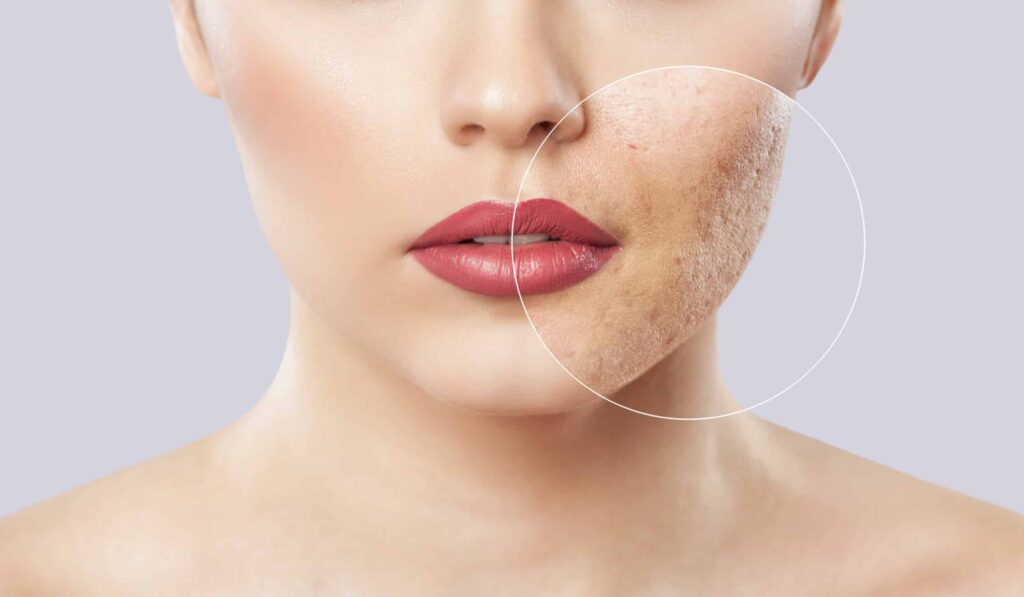Laser Acne Scar Treatment
Overview

Why it's done
- Scar Reduction: Laser acne scar treatment is performed to reduce the visibility of acne scars on the skin.
- Improved Skin Texture: It aims to smooth out the texture of the skin affected by acne scarring.
- Collagen Stimulation: By stimulating collagen production, the treatment promotes natural skin regeneration.
- Enhanced Appearance: The procedure helps to enhance the overall appearance of the skin by minimizing scar visibility.
- Boosted Confidence: It can contribute to increased self-confidence and improved psychological well-being by addressing acne scars.
- Tailored Approach: Different types of lasers are utilized based on the severity of scarring, ensuring a customized treatment plan.
- Professional Expertise: Laser treatment is conducted by dermatologists and trained skincare professionals in a clinical setting to ensure safety and efficacy.
Risk
- Skin irritation
- Pigment changes
- Scarring
- Infection
- Skin sensitivity
- Unsatisfactory results
- Eye injury
How do I get ready for Laser Acne Scar Treatment?
Consultation: Schedule a consultation with a qualified dermatologist or skincare professional to discuss your goals, medical history, and expectations from the treatment. They will assess your skin condition and determine if you’re a suitable candidate for laser therapy.
Avoid sun exposure: It’s crucial to avoid direct sun exposure for at least two weeks before the treatment. Sun exposure can increase the risk of complications and affect the effectiveness of the laser treatment. Use sunscreen with a high SPF if you need to go outside and wear protective clothing.
Discontinue certain medications: Inform your healthcare provider about any medications or supplements you’re currently taking, as some medications like isotretinoin (Accutane) may need to be discontinued before the procedure due to increased skin sensitivity.
Follow skincare routine: Follow a gentle skincare routine recommended by your dermatologist leading up to the treatment. Avoid harsh exfoliants, scrubs, or chemical peels that may irritate the skin.
Stay hydrated: Maintain good hydration by drinking plenty of water in the days leading up to your appointment. Hydrated skin tends to respond better to laser treatment and heals more quickly.
Shave treatment area: If instructed by your healthcare provider, shave the treatment area the night before or on the day of the procedure. This ensures that the laser can effectively target the acne scars without interference from hair.
Arrange transportation: Since some patients may experience temporary redness or swelling after the procedure, it’s a good idea to arrange for someone to drive you home afterward, especially if you’re undergoing a more intensive laser treatment.


